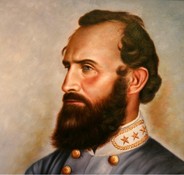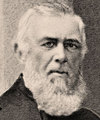“Worst Commander of the U.S. Civil War”. Here’s why:
________________________________________________________
During the First Battle of Bull Run, [Dixon Miles’ Union] division was in reserve […] [Miles] was accused by Brig. Gen. Richardson of being drunk during the battle. A court of inquiry validated this accusation. [from Wiki]
After an eight-month leave of absence, [Dixon Miles] was reassigned to what should have been a quieter post. In March 1862 he commanded a brigade that defended the Baltimore and Ohio Railroad and, in September 1862 he was given command of the Federal arsenal at Harpers Ferry.
Dixon Miles bungled the defense, assigning soldiers to defend completely the wrong places. Stonewall Jackson was able to march in and quickly surround the city with almost no fighting. Jackson took the heights above the town. The Confederates began to bombard Harpers Ferry from those heights. Commander Dixon Miles was drunk again (his subordinates reported). He eagerly decided to surrender without further ado. However:
Before the white flag could be raised, [Miles] was struck in the left leg by an exploding shell, mortally wounding him. Some of his men accused him of being drunk on duty again, and were so thoroughly disgusted by his inept defense that it was said to be difficult to find a man to carry him to the hospital. Miles died the next day and is buried in St. James Episcopal Church Cemetery in Monkton, Maryland. Some historians have concluded that Miles was struck by artillery deliberately fired by his own men, but there is no conclusive proof.
The resulting surrender of 12,419 men was the largest number of U.S. soldiers surrendered until the Battle of Corregidor in World War II. The court of inquiry into the surrender denounced Miles for “incapacity, amounting to almost imbecility.”
(1) commanded troops during two battles,
(2) was probably drunk at both battles;
(3) saw no action at one of his battles (Bull Run),
(4) bungled the defense of Harpers Ferry so bad that he surrendered 12,000 men without a fight;
(5) may have been killed by his own men, in anger over his drunken bumbling.
 T.J. “Stonewall” Jackson (1823-63)
T.J. “Stonewall” Jackson (1823-63)
(From here)
Contrasting totally with Miles, Jackson was a teetotaler.
Jackson was famously serious, stern Presbyterian; he was a fanatic driven by the desire to win, and he won just about all the battles he led, usually decisively and often lopsidedly (like Harpers Ferry). The Confederate cause was obviously right, Jackson’s men must’ve thought, if it produced men like Jackson; the Union cause was obviously wrong, the same men (and others) must’ve thought, if the Union cause produced such inept, indecisive generals.
Note also that the wonjang (director) here been seemingly-hungover during business hours, more than a few times. He is always a little surly, but on some days he’s a bit surlier and his hair is unkempt, and he hasn’t shaved, which leads the the wide suspicion of a hangover. I have no way to really confirm this, because he never graces me with the pleasure of conversation. In fact, after two years, I am sure he doesn’t even know my name.
This wonjang would’ve gotten along well with Dixon Miles, anyway.

